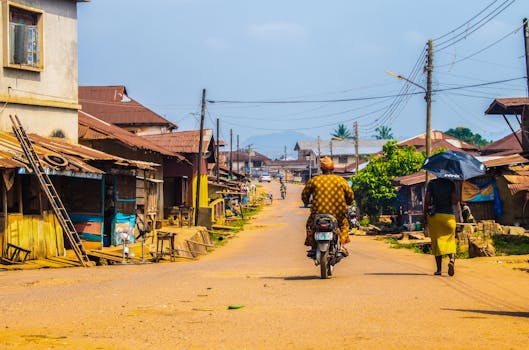
Empowering Communities: The Impact of Fiber Companies on Rural Connectivity in Africa
Introduction
Empowering Communities: The Impact of Fiber Companies on Rural Connectivity in Africa is a crucial aspect of modern development. The advent of fiber companies in Africa has revolutionized the way people communicate and access information. With the proliferation of fiber optic cables, rural areas are now connected to the rest of the world, opening up new opportunities for economic growth, education, and social development. In this article, we will explore the impact of fiber companies on rural connectivity in Africa and the benefits it has brought to local communities.
The State of Rural Connectivity in Africa
Rural connectivity in Africa has long been a challenge due to the lack of infrastructure and limited access to telecommunications services. Many rural areas have been left behind in the digital revolution, with limited or no access to internet, mobile phones, and other digital technologies. However, with the arrival of fiber companies, this scenario is changing rapidly. Fiber optic cables are being laid across the continent, connecting rural areas to major cities and the rest of the world.
The Impact of Fiber Companies on Rural Connectivity
The impact of fiber companies on rural connectivity in Africa has been significant. With the introduction of fiber optic cables, rural areas are now connected to high-speed internet, enabling residents to access a wide range of online services, including education, healthcare, and financial services. This has opened up new opportunities for economic growth, as rural businesses can now connect with global markets and access new customers. Additionally, fiber connectivity has improved communication between rural communities and the rest of the world, enabling them to stay informed about global events and trends.
Benefits of Fiber Connectivity to Rural Communities
The benefits of fiber connectivity to rural communities in Africa are numerous. Some of the key benefits include improved access to education, healthcare, and financial services. With high-speed internet, rural students can now access online educational resources, enabling them to learn new skills and access knowledge that was previously unavailable. Similarly, fiber connectivity has improved access to healthcare services, enabling rural residents to consult with doctors and access medical services remotely. Furthermore, fiber connectivity has enabled rural businesses to access new markets and customers, driving economic growth and development.
Challenges and Future Directions
Despite the many benefits of fiber connectivity, there are still challenges to be addressed. One of the major challenges is the high cost of deploying fiber optic cables in rural areas, which can be prohibitively expensive. Additionally, there is a need for more investment in digital literacy programs, to enable rural communities to make the most of fiber connectivity. However, with the continued growth of fiber companies in Africa, it is likely that these challenges will be addressed, and rural communities will continue to benefit from the many opportunities that fiber connectivity provides.
Conclusion
In conclusion, the impact of fiber companies on rural connectivity in Africa has been significant, providing numerous benefits to local communities and driving economic growth. With the continued growth of fiber companies, it is likely that rural communities will continue to benefit from the many opportunities that fiber connectivity provides. As the African continent continues to develop and grow, it is crucial that fiber companies play a key role in connecting rural areas to the rest of the world, enabling them to participate fully in the digital economy.




